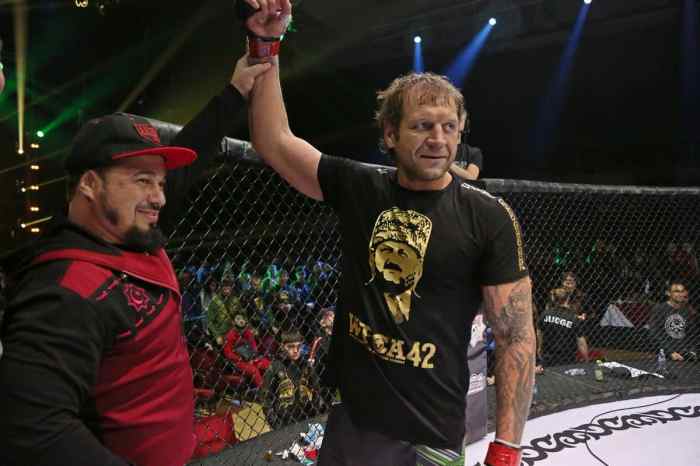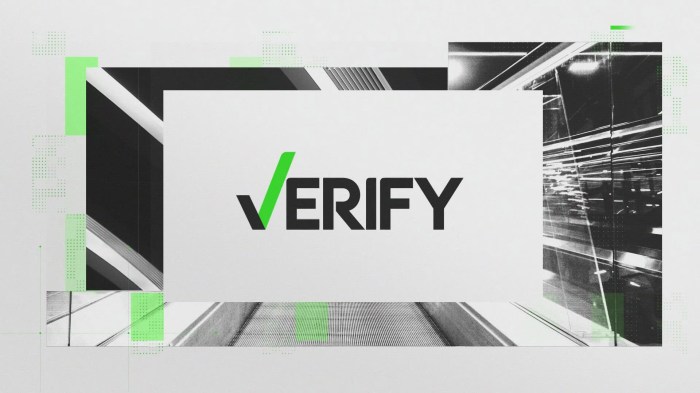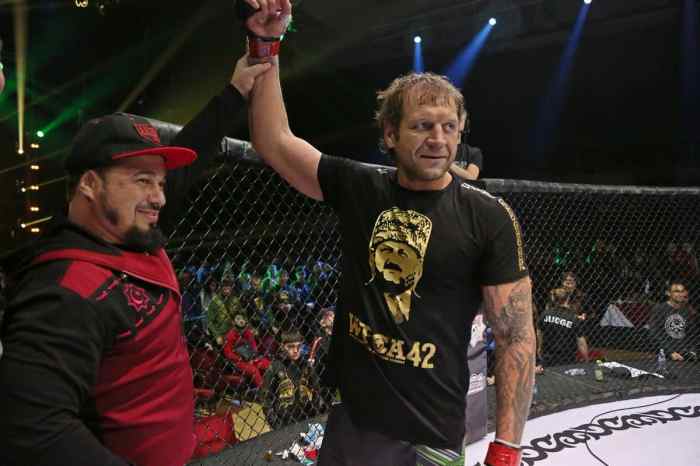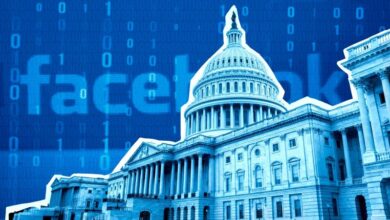
Sports franchises fight back against cyber squatting by understanding the tactics used by cyber squatters, and the legal and financial ramifications. This includes a deep dive into how these tactics harm a team’s brand, fan engagement, and revenue, as well as the psychological impact on fans and morale. Protecting valuable online assets, from domain names to social media presence, is crucial in this digital age.
The article explores the strategies employed by sports teams to defend against these attacks. Proactive measures, robust domain name management, monitoring of social media and online forums, and understanding the legal options available to sports franchises are key elements. This includes the current legal frameworks, the role of organizations like ICANN, and the analysis of legal precedents and court decisions related to cyber squatting.
Defining the Problem
Cyber squatting, a nefarious practice targeting sports franchises, involves registering domain names that closely resemble or are identical to a team’s official website address. This tactic is not simply about securing a catchy name; it’s a calculated attempt to capitalize on the team’s brand recognition and fan base for financial gain. The repercussions for sports organizations can be significant, impacting their online presence, fan engagement, and ultimately, their bottom line.
The Nature of Cyber Squatting in Sports
Cyber squatters exploit the inherent value of sports team trademarks and associated online identities. They register domain names with the intention of either selling them to the targeted franchise at a premium price or using them for malicious purposes, such as phishing scams or redirecting traffic to rival organizations. This practice is particularly damaging to sports teams because their fan bases and revenue streams are deeply connected to their online presence.
Tactics Employed by Cyber Squatters
Cyber squatters employ a range of tactics to target sports teams. These include registering domain names that are similar to the team’s official name, using variations of the team’s city or state, or even employing common misspellings. This deliberate attempt to confuse fans and divert traffic is a key component of their strategy. Further, they may use these domains for fraudulent activities or as a means of leveraging the team’s brand for their own gain.
The tactic of registering domain names with similar or identical s to the team name, and variations, is also prevalent.
Legal Ramifications
The legal ramifications of cyber squatting are substantial. Sports franchises can pursue legal action against cyber squatters, seeking injunctions to prevent the use of infringing domain names. In many cases, courts have sided with the sports teams, recognizing the infringement on intellectual property and the significant damage caused by such actions. This legal recourse, while potentially costly and time-consuming, can be a crucial tool for sports organizations to protect their online presence.
Financial Ramifications
Cyber squatting can lead to substantial financial losses for sports franchises. The cost of legal battles, the potential loss of revenue from diverted traffic, and the reputational damage to the team’s brand can all have a significant financial impact. Moreover, the difficulty in tracking and identifying cyber squatters can further exacerbate the problem, making the cost of recovery even higher.
Sports franchises are actively fighting back against cyber squatters, trying to protect their valuable online presence. This isn’t just about securing team names, but also about safeguarding their brand. Interestingly, similar struggles in the tech world are seen in how Compaq, for instance, focused on e-commerce plays catch up with Dell, a fascinating parallel to consider.
Ultimately, these battles highlight the growing importance of online brand protection for businesses of all kinds, from sports teams to tech giants.
This can lead to significant losses in revenue, and the cost of implementing anti-cyber squatting measures. Furthermore, the reputational damage from a compromised domain can harm a team’s image and deter sponsorships.
Legitimate vs. Malicious Domain Registration
The distinction between legitimate domain name registration and malicious cyber squatting is critical. Legitimate registration involves securing a domain name for genuine use, such as building a website or conducting business. Cyber squatting, on the other hand, involves registering a domain name with the intent to exploit a sports franchise’s brand recognition, causing harm or seeking financial gain.
The intent behind the registration is the key differentiator.
Impact on Sports Franchises

Cyber squatting, the act of registering domain names similar to a brand’s, has far-reaching consequences beyond simply frustrating fans. It directly targets the very core of a sports franchise: its brand reputation, fan engagement, and ultimately, its financial well-being. This insidious practice can erode trust, create confusion, and even damage the overall perception of the organization.The consequences of cyber squatting extend beyond just the immediate impact on a franchise’s image and revenue.
It creates a ripple effect, impacting fan trust and loyalty, which are critical for long-term success. A tarnished brand reputation can be exceedingly difficult, and often expensive, to restore.
Negative Impact on Brand Reputation
A sports franchise’s brand is its identity, built over years of dedication and success. A carefully cultivated image can be severely damaged when cyber squatters register similar domain names, leading to confusion among fans and potential customers. This confusion can easily lead to a negative association with the franchise. Fans might mistakenly land on a fraudulent site, encountering misleading information or even phishing attempts, further eroding trust.
This creates a negative perception of the team, ultimately impacting its image and credibility.
Examples of Past Harm to Franchises
Numerous sports franchises have faced the detrimental effects of cyber squatting. For instance, a team might have a popular website address, like “www.teamname.com,” but a cyber squatter could register “www.teamname-fanclub.com” or “www.teamname-store.com.” This creates a situation where fans searching for official information might accidentally end up on a site run by individuals seeking to exploit the team’s popularity.
Such unauthorized sites could host counterfeit merchandise or even disseminate misinformation, damaging the franchise’s reputation.
Impact on Fan Engagement and Revenue Loss
Cyber squatting directly impacts fan engagement and potential revenue. When fans encounter fake sites, they may lose trust in the official channels. This lack of trust can translate into a decline in fan engagement, leading to reduced attendance at games, diminished merchandise sales, and decreased ticket revenue. A negative online experience can deter potential sponsors from partnering with the franchise, further impacting the team’s financial stability.
This scenario is exacerbated by the difficulty fans have in verifying the legitimacy of information.
Psychological Effect on Fans and Team Morale
The constant threat of cyber squatting can have a psychological impact on fans and the team’s morale. Fans may feel frustrated and misled by the presence of counterfeit websites. The feeling of being deliberately misdirected and deceived can create negative feelings towards the franchise. Furthermore, the team’s staff and management may feel a constant pressure to address these issues, leading to stress and potentially affecting their overall morale and focus on game performance.
The perception of vulnerability and control being lost can lead to a general sense of unease within the organization.
Strategies for Defense
Protecting a sports franchise’s online identity from cyber squatters requires a multifaceted approach. Simply put, it’s not just about owning a domain name; it’s about proactively safeguarding the entire online presence. This proactive approach needs to extend beyond just domain names to include social media and other digital touchpoints.A robust defense strategy goes beyond reactive measures; it’s about anticipating and preemptively addressing potential threats.
This requires a comprehensive understanding of the tactics employed by cyber squatters and a willingness to adapt and evolve strategies as new techniques emerge.
Proactive Measures to Prevent Cyber Squatting
Maintaining a comprehensive domain name portfolio is crucial to preempting potential squatting attempts. This involves registering not just the primary domain name, but also variations, misspellings, and related terms. This proactive approach helps to secure the franchise’s brand identity across the digital landscape.
- Comprehensive Domain Name Portfolio Management: This includes registering variations of the team name, city, and nicknames, as well as relevant s and common misspellings. For example, a team called the “New York Giants” should register “newyorkgiants,” “nygiants,” “new-york-giants,” and other possible permutations. This strategy effectively prevents competitors or malicious actors from securing valuable online assets that could harm the franchise’s brand image.
- Monitoring Social Media and Online Forums: Actively tracking social media channels and online forums associated with the sport and the franchise is essential. By monitoring conversations, fans’ comments, and discussions related to the team, potential issues can be spotted before they escalate. For instance, a team could use social media listening tools to identify conversations about their team or potential domain name conflicts.
- Utilizing Trademark Monitoring Services: These services actively monitor online platforms for unauthorized use of trademarks, logos, and other intellectual property assets. They alert the franchise to potential violations, including cyber squatting attempts, ensuring swift action to address infringement. This proactive approach is particularly useful for preventing the use of a franchise’s trademark or logo in unauthorized websites or online platforms.
- Establishing Clear Trademark Policies: Clear and well-defined policies regarding the use of trademarks and brand assets within the digital sphere should be communicated to all team personnel, employees, and associated parties. These policies must clearly Artikel the consequences for unauthorized use or misuse of intellectual property, which includes potential cyber squatting activities.
Robust Domain Name Portfolio Management Strategies
A comprehensive domain name portfolio is a crucial defensive measure. It’s not just about owning the primary domain; it’s about securing a broad range of variations and related terms.
- Registering Variations: Registering variations of the team name (e.g., different spellings, abbreviations) is essential to prevent squatters from capitalizing on minor typos or similar-sounding names. For example, a team called “Los Angeles Lakers” should also register “lakers,” “la-lakers,” “losangeleslakers,” and similar variations.
- Registering Related Terms: Registering related terms (e.g., team location, sport, and prominent players) strengthens the overall online brand protection. If a team is known for their particular style of play, registering terms related to this style could be a significant preventative measure. For example, the “Miami Heat” might want to secure “miamiheatbasketball,” “heatbasketball,” and similar terms.
- Utilizing Domain Name Monitoring Tools: These tools actively scan for new domain registrations, potentially identifying cyber squatting attempts before they impact the franchise’s online presence. This ensures timely responses to potential issues.
Monitoring Social Media and Online Forums for Potential Squatting Attempts, Sports franchises fight back against cyber squatting
Proactively monitoring online discussions is crucial for spotting potential cyber squatting attempts. This proactive approach allows the franchise to address concerns early on and prevent harm to the brand.
- Utilizing Social Listening Tools: Social listening tools provide valuable insights into conversations about the team or its name, allowing for early detection of potentially harmful actions or threats. For example, monitoring mentions of the team name in different social media platforms, forums, or online communities allows identification of potential squatting attempts or trademark infringement.
- Identifying Patterns: Careful observation of patterns in online discussions, such as recurring s or phrases associated with the team’s name or trademarks, can help identify potential squatting attempts. Monitoring these patterns can help identify suspicious activities before they develop into major threats.
Legal Options Available to Sports Franchises
Understanding legal recourse is crucial for responding to cyber squatting attempts. These actions can involve a wide range of legal approaches, from cease-and-desist letters to formal legal proceedings.
- Cease-and-Desist Letters: A cease-and-desist letter is a formal notification to the cyber squatter to cease the unauthorized use of the domain name or other intellectual property. These letters often provide an initial attempt to resolve the issue without resorting to legal action.
- U.S. Trademark Office Actions: Legal actions can be taken through the U.S. Trademark Office to enforce trademark rights and address infringement, including cyber squatting. The Trademark Office provides a platform for legal action against those who use trademarks in unauthorized ways.
- Domain Name Dispute Resolution: Utilizing domain name dispute resolution procedures is a crucial legal option available to sports franchises when dealing with cyber squatters. This can involve formal proceedings through the ICANN (Internet Corporation for Assigned Names and Numbers) to challenge the ownership of a domain name.
Legal and Regulatory Landscape: Sports Franchises Fight Back Against Cyber Squatting

Protecting a sports franchise’s online identity and brand requires a strong understanding of the legal and regulatory landscape surrounding cyber squatting. This domain name dispute arena is complex and involves various international organizations and legal precedents. Navigating this environment is crucial for preventing unauthorized use of a franchise’s valuable intellectual property.The current legal frameworks for combatting cyber squatting are diverse and often rely on specific laws related to intellectual property, trademarks, and unfair competition.
The enforcement of these laws varies depending on the jurisdiction, requiring sports franchises to understand the nuances of each region’s legal system. This understanding is essential for developing effective strategies to safeguard their online presence.
Current Legal Frameworks
Existing legal frameworks to combat cyber squatting vary widely. In many jurisdictions, laws concerning intellectual property, trademarks, and unfair competition form the basis for legal action. These frameworks generally recognize the right of a trademark owner to prevent others from using similar marks in a way that creates confusion or dilutes the brand. This is particularly relevant for sports franchises, given their reliance on recognizable logos and names to generate revenue.
Role of ICANN and Other Organizations
The Internet Corporation for Assigned Names and Numbers (ICANN) plays a pivotal role in resolving domain name disputes. ICANN’s Uniform Domain Name Dispute Resolution Policy (UDRP) provides a streamlined procedure for resolving such disputes. Other organizations, such as national trademark offices and relevant courts, also contribute to enforcing the rights of sports franchises. These entities provide avenues for redress when a sports franchise’s domain name is improperly registered or used by a third party.
Legal Precedents and Court Decisions
Numerous court decisions have shaped the legal landscape of cyber squatting. These precedents establish important principles, such as the concept of “likelihood of confusion,” which assesses whether a domain name is so similar to a trademark that consumers might be misled. These rulings help to clarify the standards for establishing a valid claim against a cyber squatter. Cases involving famous sports teams, like the NFL’s teams or major basketball leagues, have often been instrumental in setting these standards.
For instance, a ruling might establish that using a similar domain name to a team’s official website is likely to cause confusion.
Comparison of Jurisdictions’ Laws
| Jurisdiction | Relevant Laws | Enforcement Mechanisms |
|---|---|---|
| USA | Lanham Act, state trademark laws | Trademark Office, Federal Courts |
| EU | Community Trade Mark Regulation, national trademark laws | EU Intellectual Property Office, national courts |
| UK | Trade Marks Act 1994, national trademark laws | Intellectual Property Office, UK courts |
| Canada | Trade-marks Act, other relevant laws | Canadian Intellectual Property Office, Canadian courts |
| Australia | Trade Marks Act 1995, other relevant laws | Australian Intellectual Property Office, Australian courts |
This table highlights the key differences in the legal frameworks for domain name disputes across various jurisdictions. Each jurisdiction has its own specific laws and enforcement mechanisms. This difference in laws means a sports franchise needs to tailor its legal strategy to the specific jurisdiction where a dispute arises.
Technological Solutions
Cyber squatting, a persistent threat to sports franchises, demands proactive and sophisticated technological solutions. Protecting valuable brand identities and online presence requires a multi-faceted approach that leverages cutting-edge monitoring and security measures. These solutions go beyond simply reacting to attacks; they aim to predict and prevent them, fostering a proactive security posture.Early detection is crucial to mitigating the impact of cyber squatting.
By implementing robust monitoring systems, sports franchises can identify potential infringements before they cause significant damage to their brand and revenue streams. A proactive approach is not only cost-effective but also safeguards the reputation and integrity of the organization.
Early Detection System Design
A robust early detection system should be built on a foundation of real-time monitoring of domain name registrations and social media activity. This system should actively scan for variations of existing trademarks and brand names, monitoring new registrations in similar domains. Sophisticated algorithms can analyze patterns in domain name registrations and social media activity, flagging suspicious activity. This system should be regularly updated with new trademark and brand name registrations to maintain accuracy.
Advanced Monitoring Tools and Software
Advanced monitoring tools are essential for identifying potential squatting attempts. These tools can track the registration and renewal dates of domain names, monitor social media accounts using the same or similar names, and track online discussions about the sports franchise. Using a combination of domain name registration databases and social media monitoring platforms, sports franchises can proactively identify potential threats.
For example, a system might flag a domain name registration that mirrors a franchise’s name but uses a different top-level domain (e.g., .shop instead of .com).
Sports franchises are increasingly taking a proactive stance against cyber squatters, registering domain names and social media handles to protect their brands. This proactive approach, however, might be seen as a frustratingly familiar battle in the wider context of intellectual property protection. Are EU initiatives just another wish list of well-meaning but ultimately ineffective ideas, like this recent discussion ?
Ultimately, the fight against cyber squatting requires a multi-faceted approach, from legislative action to individual franchise vigilance.
Role of Cybersecurity Specialists
Cybersecurity specialists play a critical role in safeguarding sports franchises from cyber squatting. Their expertise in identifying and responding to threats is essential. They can analyze data from monitoring systems, assess potential risks, and develop strategies to mitigate the impact of attacks. These specialists should be involved in the design and implementation of early detection systems to ensure they meet the unique needs of the franchise.
They can advise on the use of specialized software and hardware, as well as train staff on best practices.
Response Process Flowchart
The following flowchart Artikels the process for responding to a cyber squatting attempt: 
(Note: This is a visual representation of a flowchart. A detailed flowchart would include specific steps, timeframes, and roles. The illustration would show the steps from initial detection to legal action. This includes:
- Detection: Identify suspicious activity through monitoring systems.
- Assessment: Evaluate the potential impact and severity of the squatting attempt.
- Contact: Notify relevant personnel, including legal counsel and cybersecurity specialists.
- Action Plan: Develop and execute a response strategy, which could involve contacting the domain registrar or initiating legal proceedings.
- Monitoring: Continue monitoring the situation to prevent further attempts.
Case Studies
Cyber squatting, the nefarious practice of registering domain names resembling those of legitimate businesses, poses a significant threat to sports franchises. These tactics can lead to significant financial losses, reputational damage, and erosion of brand equity. Understanding successful legal battles against these squatters provides valuable insight into effective defense strategies.Successful legal battles against cyber squatters demonstrate the importance of proactive measures.
Franchises need to be vigilant and act swiftly when faced with this type of threat, employing a multifaceted approach that combines legal action, technical solutions, and proactive brand management.
Successful Legal Battles
Franchises have successfully employed a variety of legal strategies to combat cyber squatters. These strategies often involve domain name disputes through the Uniform Domain Name Dispute Resolution Policy (UDRP). The UDRP provides a streamlined process for resolving disputes, enabling quicker resolutions. Successful outcomes often rely on demonstrating a clear and established trademark right to the domain name in question.
Sports franchises are increasingly fighting back against cyber squatters, protecting their valuable online presence. This proactive approach mirrors the strategic moves of companies like e piphany, who recently made their first post-IPO acquisition. This acquisition, detailed in e piphany makes first post IPO acquisition , highlights a broader trend of companies bolstering their digital assets. Ultimately, robust online protection is crucial for the long-term success of any sports organization.
Actions Taken by Franchises
The actions taken by franchises vary based on the specific circumstances of each case. Common actions include:
- Filing UDRP Complaints: Franchises frequently file UDRP complaints with the relevant domain name registrar to challenge the registration of infringing domain names. These complaints typically highlight the franchise’s prior use and trademark rights to the relevant domain name. For instance, the New York Yankees have successfully used UDRP complaints to reclaim domain names closely resembling their official website address.
- Filing Trademark Infringement Suits: In cases where UDRP procedures are insufficient or the dispute extends beyond the domain name itself, franchises may pursue full-fledged trademark infringement lawsuits. These suits aim to prevent further misuse of the franchise’s trademarks and seek financial compensation for damages suffered.
- Negotiation and Settlement: In some instances, franchises choose to negotiate with the cyber squatter to resolve the dispute outside of court. This approach can be beneficial in cases where the cost of litigation outweighs the potential gain.
Outcomes and Effectiveness Comparison
The outcomes of these legal battles vary greatly. Some cases result in the immediate transfer of the domain name to the franchise, while others involve more protracted legal battles. The effectiveness of different strategies depends on several factors, including the strength of the franchise’s trademark rights, the jurisdiction of the dispute, and the resources available to both parties.
Fictional Case Study: The “Phoenix Suns”
Imagine the Phoenix Suns, a prominent NBA franchise, discovers a cyber squatter has registered “phoenixsuns-tickets.com.” The domain name is very similar to the team’s official website and could potentially redirect fans to a fraudulent ticket vendor.
- Initial Response: The Suns would immediately investigate and assess the situation. They would verify the domain name registration and identify the cyber squatter. This is a critical first step to avoid any further damage.
- Legal Strategy: The Suns would file a UDRP complaint with the domain name registrar. The complaint would clearly demonstrate the Suns’ trademark rights to the “Phoenix Suns” brand and the established use of their official domain name. They might also investigate whether the cyber squatter is deliberately trying to deceive customers.
- Technical Solutions: The Suns would work with their IT team to implement appropriate DNS settings to redirect traffic from the disputed domain to their official website. They would also monitor online forums and social media platforms to identify any attempts to use the domain name for malicious purposes.
- Outcome: The success of the Suns’ legal strategy would depend on the strength of their trademark rights, the cyber squatter’s response, and the willingness of the registrar to uphold the UDRP guidelines. In a successful outcome, the domain name would be transferred to the Suns. In a less successful outcome, the Suns might need to pursue additional legal action, such as a trademark infringement lawsuit.
Future Trends
The digital landscape is constantly evolving, and sports franchises must adapt to stay ahead of emerging threats. Cyber squatting, a persistent challenge, is not static. New tactics and technologies are constantly emerging, demanding proactive strategies for protection. Understanding these future trends is crucial for safeguarding a sports franchise’s online identity and brand integrity.
Emerging Cyber Squatting Tactics
Sports franchises need to be aware of sophisticated tactics beyond traditional domain name squatting. These include the registration of variations on team names, using similar logos and trademarks in online platforms, and leveraging social media to create confusingly similar accounts. Furthermore, the use of AI-powered tools to generate near-identical domain names or social media handles, potentially diluting brand recognition, is a significant concern.
The increasing sophistication of these tactics underscores the need for robust preventative measures.
Evolution of the Legal Landscape
The legal landscape surrounding domain name disputes is likely to become more complex and nuanced. International cooperation and the development of specialized courts for digital disputes may emerge. This evolution will demand a more proactive and international approach to managing domain name portfolios. The introduction of AI-powered legal assistance tools could also change how these disputes are handled, increasing the efficiency of legal processes and reducing costs.
Emerging Technologies for Countermeasures
Several technologies offer promising countermeasures against cyber squatting. Real-time monitoring systems that track attempts to register similar domain names or social media handles in real-time are vital. These systems can identify potential threats and trigger immediate responses, thereby significantly reducing the risk of damage. Furthermore, AI-powered tools can be used to identify and flag potentially malicious activity, enabling sports franchises to respond rapidly and effectively.
Innovative Approaches to Online Presence Management
To prevent future squatting attempts, sports franchises should consider a more comprehensive approach to managing their online presence. This includes securing a broad portfolio of domain names, including variations, misspellings, and similar names. Moreover, proactively registering trademarks and logos across various online platforms is essential. Integrating AI-powered tools into brand monitoring systems, which can identify and flag potential issues in real time, can enhance this proactive approach.
Utilizing these measures will help anticipate and neutralize emerging threats. Additionally, transparent communication with fans and the public regarding online safety and the franchise’s brand protection efforts can build trust and deter malicious activity.
Last Recap
In conclusion, sports franchises are increasingly recognizing the critical need to safeguard their digital presence. From understanding the tactics of cyber squatters to implementing robust defense strategies, proactive measures are paramount. A multifaceted approach combining legal strategies, technological solutions, and a deep understanding of emerging trends is crucial for navigating the complexities of the digital landscape and preserving their brand reputation.
Ultimately, the ability to quickly identify and respond to threats is key to protecting valuable online assets and fan engagement.






